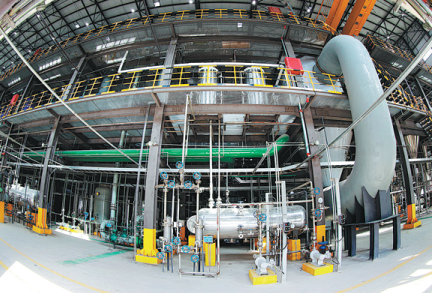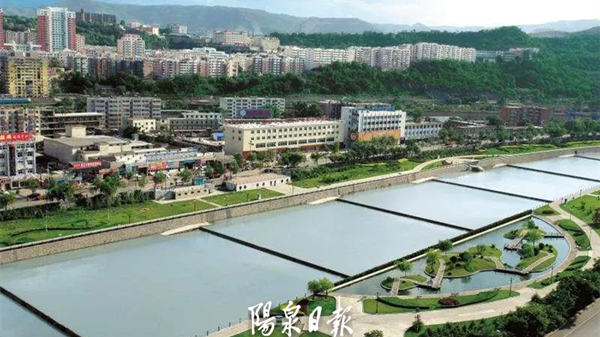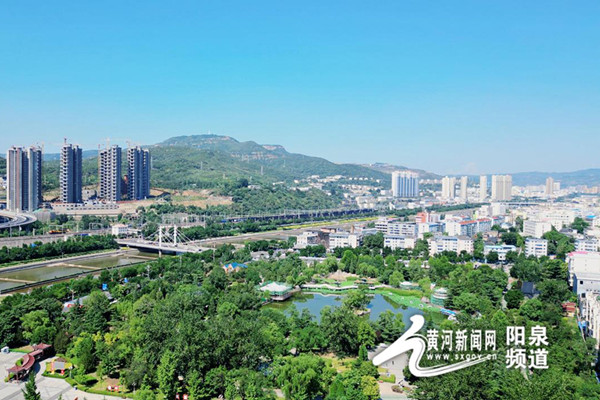City looks to build on growth via upgrading, transforming industry

Huayang New Material Technology Group in Yangquan, Shanxi province, boasts advanced production facilities and technologies. [Photo by Zhang Yi for China Daily]
On the back of progress made in innovation and industrial transformation over the past five years, the city of Yangquan is continuing in the same direction for the 14th Five-Year Plan (2021-25), seeking out new areas of growth.
The mountainous city in North China's Shanxi province is known for its coal production and traditional industries. But today efforts are being made to boost new industries such as big data and foster industrial clusters for new materials such as aerogels and advanced synthetic graphite.
Yangquan's added value for new materials increased by 12.8 percent on average annually during the 13th Five-Year Plan (2016-20). The added value for new energy increased by an average of 16.7 percent and new-type modern services up by an average of 7 percent annually during the same period.
The information technology industry grew from virtually nothing during the period with its added value increasing by 11.7 percent annually on average.
Infrastructure construction has also been a highlight of Yangquan in recent years. Its museum, urban planning exhibition hall, cultural gallery and shooting and archery center have all opened to the public.
The first phase of Yangquan Avenue, Hongcheng North Road and Pingyang Street have opened to traffic and the Yangquanbei-Dazhai Railway has been put into operation.
The city has also taken measures to boost social welfare. Totally, 27,000 people classified as poor have been lifted out of poverty with their net income per capita reaching 9,721 yuan ($1,500) annually.
Zhai Liwei is responsible for a poverty-alleviation industrial park in Pingding county. He is also general manager of Shanxi Tianhong Jinteng Commercial and Trading, which produces customized furniture.
His company was asked to help the county's 1,147 impoverished households. Supported by departments from the county and Yangquan, Zhai led his company to develop a project comprising the poverty alleviation industrial park, a customized furniture production base, an agricultural product processing area and an operations center for branded agricultural products.
The poverty alleviation industrial park has attracted businesses to participate in the project which has promoted the local economy and created jobs for local residents.
"Starting a business in my hometown and leading folks to become rich has long been my wish," Zhai said.
During the 14th Five-Year Plan, the city government is emphasizing innovation and industrial transformation, advancing its digital economy and creating a new materials industrial cluster capable of producing 100 billion yuan in combined annual output value.
Two industrial parks focusing on new materials and information technologies are attracting resources from home and abroad to the city, helping to improve services for entrepreneurship and innovation, officials said.
Wang Pei contributed to this story.





